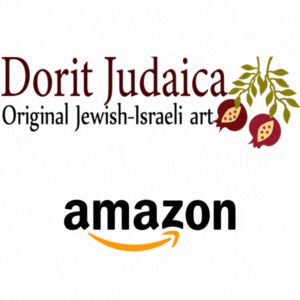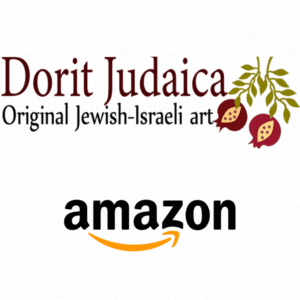Op-Ed: We Need a Broader Kashrus Discussion
Op-ed by Rabbi Gershon Avtzon, Cincinnati Ohio: It is no secret that the “Agriprocessors – Shor Habor” saga (which I will not be getting into here) reignited an important discussion about our Kashrus standards in general and the concept of Lubavitch Shechita in particular. With this in mind, I would like to discuss a few areas where we, and our children, digest external things into our internal conscience that we may not be aware about the importance of a proper “Kashrus system” • Full Article
By Rabbi Gershon Avtzon, Cincinnati Ohio
It is no secret that the “Agriprocessors – Shor Habor” saga (which I will not be getting into here) reignited an important discussion about our Kashrus standards in general and the concept of Lubavitch Shechita in particular. These discussions – no matter what personal position and opinion that you may have about a particular product or hechsher – are so important to have. We all know the effect of the food that we eat has on our physical health, spiritual refinement and behavior. As the famous saying goes: “You are what you eat”.
That being said and established, it is so important that we do not limit the discussion about Kashrus to food items and particular hechsheirim, rather to anything that our bodies and minds digest. There is a famous letter of the Rebbe (Igros, volume 4 page 267, letter #958) which he writes: “The saying of my father in law [the Frierdiker Rebbe], when he came to America, is well known: “Es is duh hashgacha oif vus men leigt is di teplach, farvos is nittu kein hashgacha vus men leigt in di keplach? – There exists oversight on what enters a Jewish pot (on food), why is there no oversight on what enters their heads (their education)?”
With this in mind, I would like to discuss a few areas where we, and our children, digest external things into our internal conscience that we may not be aware about the importance of a proper “Kashrus system”:
1. Music: Everyone that is reading this already understands the tremendously negative effects of non-Jewish music on the soul of the listener. Besides the lyrics, which are usually filled with inappropriate words and content, the very tunes – which are an expression of the heart of the composer – can be defiling.
This being said, do we – as parents – have clear guidelines as to what is considered “Jewish music”? If the words are Hebrew, does that make them “Jewish”? If the composer was not-frum but the singer is Frum, does that make it “Jewish”? If a frum singer added jewish words and messages to non-Jewish songs (like many “popular and accepted” Jewish singers do unfortunately), did they suddenly become Jewish?
I was shocked when someone forwarded me a clip of a Lubavitcher singer saying the following: “I asked a very knowledgeable mashpia to define the concept of a “Jewish song”: He responded that it is similar to Bishul Yisroel. As long as the Jewish singer adds some Jewish twist to the song, it is fine.” Please ask yourselves: Is that an acceptable standard to you?
2. Tefillin and Mezuzahs vendors: I am, once again, assuming that everyone reading this would never walk into a restaurant that does not have a reliable hechsher. This would be the case even if the person that owns the restaurant is a frum Jew. It is not that you don’t trust the owner personally but “business is business” and we always need extra rabbinical oversight. Yet, when it comes to stores that sell tefillin and Mezuzas, we seem to be fine that there is no official “hechsher” from a Beis Din that comes to the store and verifies that everything that is being sold is kosher and up to proper standards.
How many thousands of people got answers from the Rebbe – after writing that they were experiencing issues – “Bedikas tefillin and Mezuzos – checking the Tefillin and Mezuzahs”? It is so important that there is proper oversight in these matters.
3. Mikvaos: The importance of a Kosher Mikvah Taharah needs no explanation, as it is the foundation of the Jewish home. A proper and Kosher “Keilim Mikvah” is also vital as we are dealing with a biblical decree (“Midoraisa”). Yet there are so many appliance stores that have Mikvaos that have not been inspected by a Rav (ever or at least) in Years! The same is true with many Mikvaos for Tahara (as I personally heard from Rabbi Yirmiyahu Katz who is one of the leading experts in Mikvaos in America.) The stories that I have heard from rabbanim about Mikvaos that are not supervised properly are hair-raising.
4. Therapists, Dating coaches and Chassan and Kallah teachers: While each of these are deserving of a section – and discussion – of their own, suffice it to say that they all are in a category that are dealing with the minds, hashkafos and emotions of people. It is so important that only people that have been vetted by Rabbanim, and thus have the proper “hechsher”, be used to deal with such sensitive issues.
All the above-mentioned standards will only be implemented if the people demand it. If the vendors (i.e. musicians, Mochrei Sta”m etc) know that they will only be able to make a financial profit from their services if they have a “hechsher” from Rabbanim – just like food vendors – they will make sure to get certified. It is up to us and it is something that concerns us and our children.
Are we ready to “go kosher”?
Wishing everyone a Kosher and Freilichen Pesach!
Please feel free to share your thoughts on the above with me by sending me a personal email: rabbiavtzon@gmail.com
221
Join ChabadInfo's News Roundup and alerts for the HOTTEST Chabad news and updates!











































